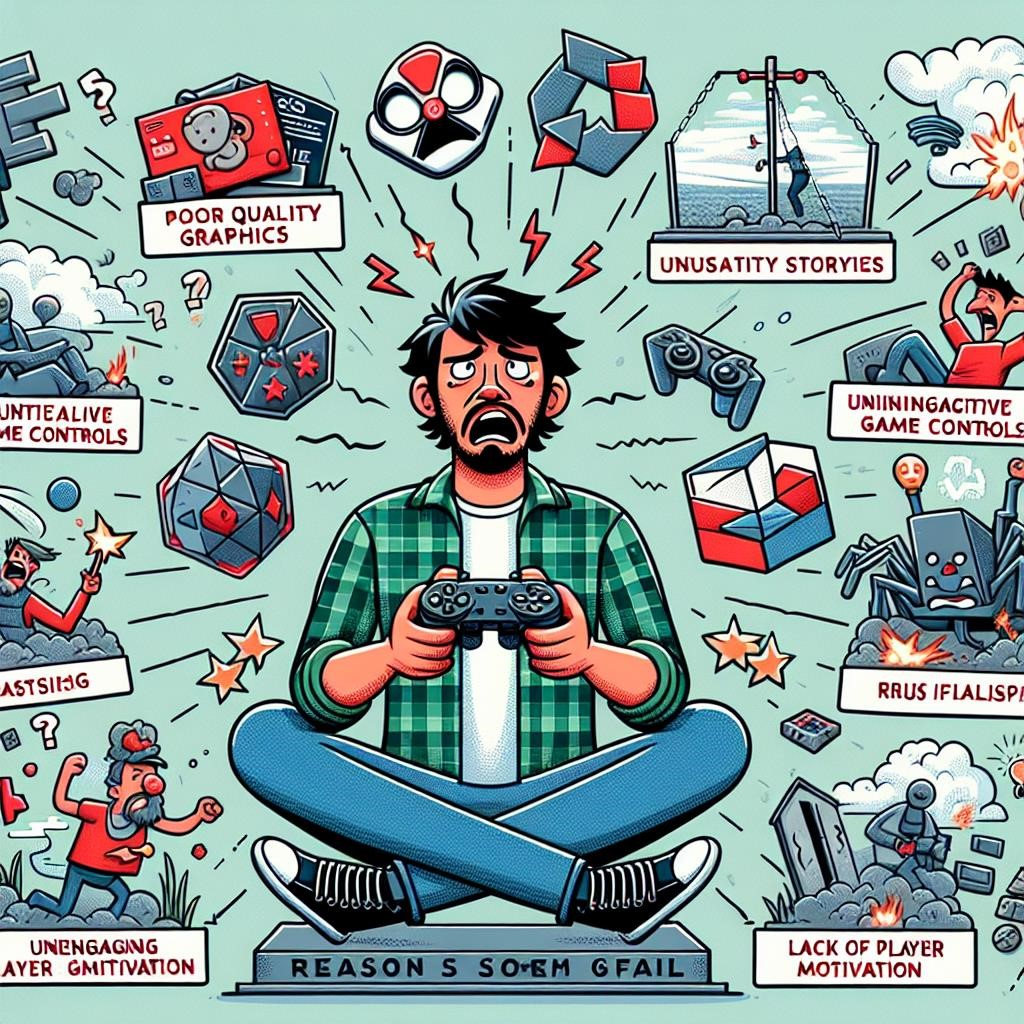In the competitive world of video games‚ not every title can become a hit․ Several factors contribute to the failure of games‚ ranging from poor design choices to mismanagement of resources․ Understanding these reasons can provide valuable insights for developers and fans alike․
1․ Lack of Innovation
One of the primary reasons games fail is a lack of innovation․ Players are constantly seeking new experiences‚ and when a game feels like a rehash of previous titles‚ it can fail to capture interest․
- Stagnant Mechanics: Using outdated gameplay mechanics can make a game feel stale․
- Predictable Storylines: A clichéd plot or characters can lead to disinterest․
2․ Poor Quality Assurance
Quality assurance is crucial in game development․ Many failed games launch with numerous bugs and glitches‚ frustrating players․
- Technical Issues: Game-breaking bugs can ruin the experience for players․
- Performance Problems: Lag and crashes can deter players from continuing․
3․ Misguided Marketing
Marketing plays a key role in a game’s success․ Misleading campaigns can create unrealistic expectations‚ leading to disappointment upon release․
- Overhyping Features: Promising features that are not delivered can lead to backlash․
- Targeting the Wrong Audience: Failing to identify the right demographic can waste marketing resources․
4․ Ineffective Community Engagement
Community engagement is essential for maintaining player interest․ Games that ignore player feedback or fail to foster a community may struggle․
- Ignoring Feedback: Not listening to player input can alienate the fanbase․
- Lack of Updates: Regular updates and new content keep players engaged․
5․ Poor Monetization Strategies
Monetization is a delicate balance․ If a game is too aggressive in its monetization‚ it can drive players away․
- P2W Elements: Pay-to-win mechanics can frustrate players who do not want to spend extra money․
- Excessive Microtransactions: Frequent prompts to purchase items can detract from the gameplay experience․
6․ Competition and Market Saturation
The gaming market is crowded‚ making it difficult for new titles to stand out․ A lack of unique elements can lead to failure․
- Too Few Differentiators: Without unique features‚ a game may be overlooked․
- Overwhelming Choices: Players may choose established franchises over new titles․
7․ Financial Mismanagement
Developing a game requires substantial funding‚ and mismanagement of finances can lead to project failures․
- Budget Cuts: Reducing the budget mid-development can compromise quality․
- Delayed Releases: Extended development times can increase costs and lead to project abandonment․
